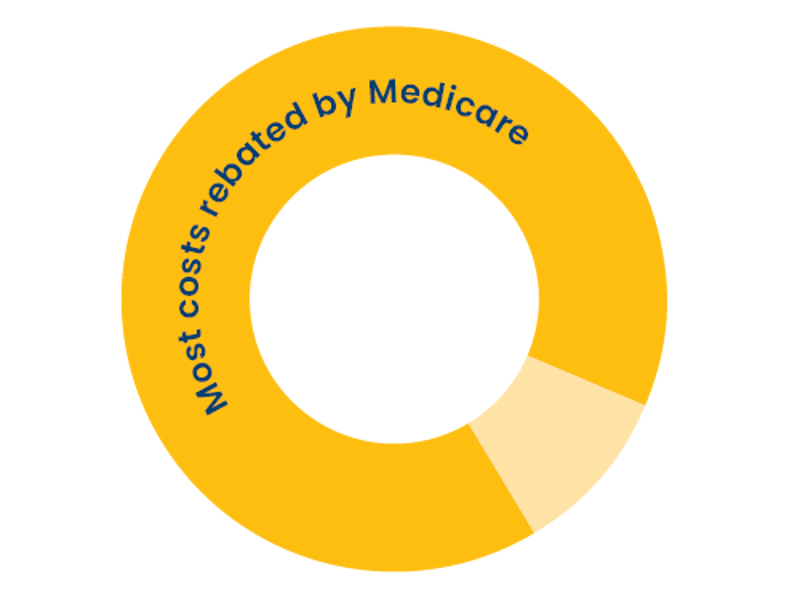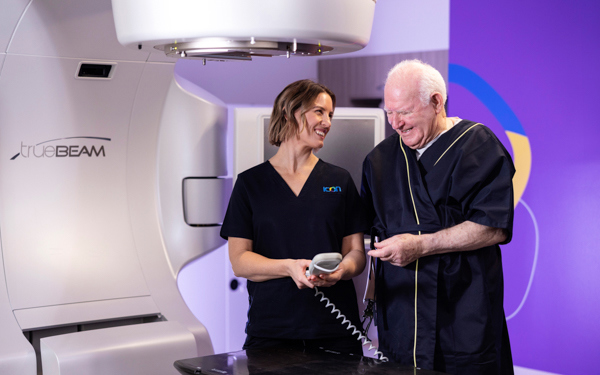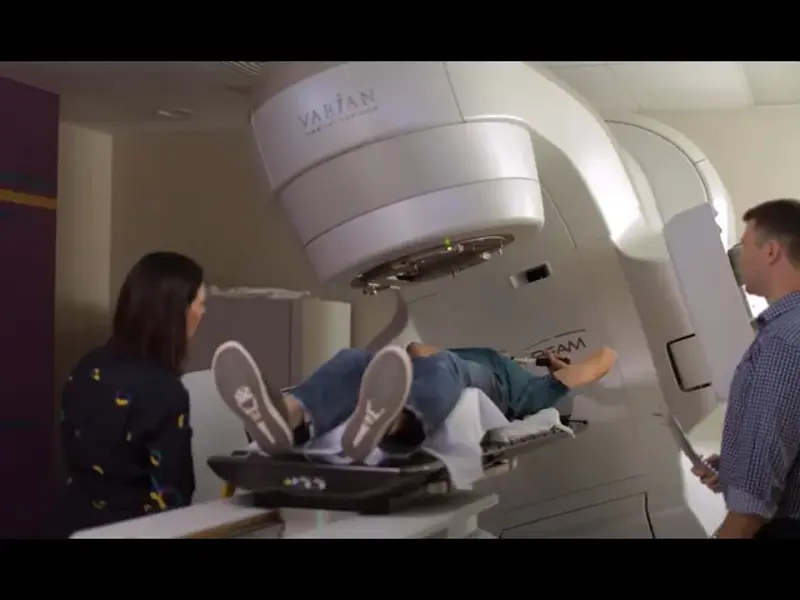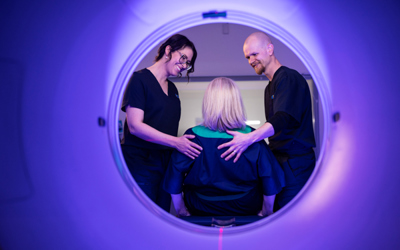What is radiotherapy?
Radiotherapy, or radiation therapy, is the use of radiation to safely treat and manage cancer. Radiation is used to eradicate cancer cells, reduce their growth or relieve symptoms of cancer.
Radiotherapy treats cancer by damaging cancer cells while limiting the impact to healthy cells. It works because cancer cells are more sensitive to radiation than healthy, normal cells. When a small dose of radiation is given each day over several weeks, normal cells can recover from the radiation, but cancer cells cannot.
Radiotherapy is typically a painless treatment, similar to having an x-ray, and is only delivered to the part of the body being treated.
Download your free cancer diagnosis checklist
Be more informed and play an active role in your own cancer care.

What are the side effects of radiotherapy?
Radiotherapy treatment is unique to each person and can affect the body in different ways. The most common side effect is fatigue, a feeling of exhaustion or lack of energy. Some people may also experience bowel or bladder irritation as they progress through treatment.
As radiation is targeted to a specific area of the body, other side effects are often contained to the area being treated. Site-specific effects may include skin irritation (redness, dryness, itching, peeling or blistering), pain, swelling and hair loss in the area being treated.
The below table provides examples of other side effects some people may experience, depending on the area being treated.
Radiotherapy side effect | Treatment site |
|---|---|
Nausea and vomiting | Abdomen |
Difficulty swallowing | Throat or oesophagus |
Loss of taste, dry mouth, oral thrush, mouth ulcers | Head and neck |
Female fertility | Abdomen, pelvis or pituitary gland |
Male fertility | Pelvis or testes |
Erectile function | Pelvis |
How long do side effects last?
Although most radiotherapy side effects are temporary and resolve after treatment has finished, there is a possibility that long-term effects may occur. Your treatment team will discuss the type of side effects you may experience before your treatment begins.
Once you have commenced treatment, it's important to let your treating team know of any effects you notice, and those that are making you uncomfortable. At Icon Cancer Centre, your comfort is a priority; we are always there to help find ways to manage any side effects you experience.
How much does radiotherapy cost?
Your radiotherapy plan will be tailored to your specific needs. Following an initial consultation with an Icon doctor, you will be provided with a cost estimate reflecting your unique treatment plan.
Radiotherapy is typically an out-of-hospital or outpatient service, which means there will be out-of-pocket costs. If you have a valid Medicare card, most treatment costs will be rebated. Depending on your Medicare Safety Nets threshold, any out-of-pocket costs may be further reduced.
For more information about the cost of radiotherapy treatment at Icon, reach out to our team at your nearest Icon Cancer Centre. They'll explain your estimate and help you navigate the Medicare rebates in detail.

No private health insurance needed for radiotherapy
In Australia, private health funds do not cover your radiotherapy treatment fees as an outpatient. Radiotherapy is typically an out-of-hospital or outpatient service, meaning you are not formally admitted to hospital, even if that's where you receive your care. This impacts what Medicare and health funds can help pay for.
If you’re admitted to a private hospital that has an Icon Cancer Centre collocated at any point during your care, your hospital and radiotherapy costs may be billed to your private health fund if you choose to make a claim and have a hospital insurance policy that covers this treatment.
If you’re unsure, one of our experienced team members will explain what this means for your circumstances.
How is radiotherapy delivered?
Radiotherapy treatment can be delivered on its own, or in combination with other forms of treatment, such as chemotherapy, hormone therapy and surgery. It's commonly undertaken as an outpatient service—these are medical services that do not require hospital admission.
At Icon, we use cutting-edge radiotherapy techniques and technology to deliver pinpoint accurate radiation to the tumour. Our technology and expertise allow us to accurately treat all cancer types of various sizes and locations.
How long does radiotherapy treatment take?
Treatment is usually given in daily intervals (Monday to Friday) over several weeks, allowing enough radiation to target cancer cells while providing healthy cells enough time to recuperate. A radiotherapy treatment session may only last 15 to 20 minutes, however you may need to attend other appointments, such as seeing your oncologist.
A single course of radiotherapy is unique to each person and their condition. This includes the site and stage of the disease, type of disease, a person’s age and general health.

Common radiotherapy techniques
Frequently asked questions
Helpful resources
Find compassionate, expert cancer care close to home.
Our experienced doctors are here to support you with personalised care and access to the latest treatment options.
At Icon, you can feel confident knowing you’re in trusted hands every step of the way.







